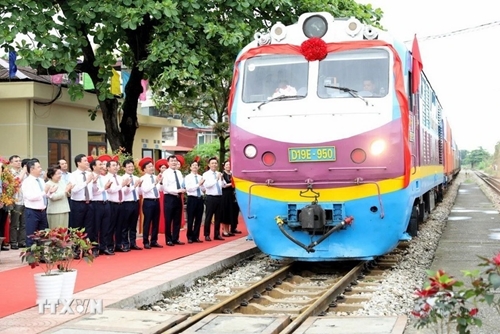June 06, 2025 | 23:20 (GMT+7)
Vietnam-China railway service heralds new chapter in bilateral relations
China’s state-run website china.com.cn has recently published an article on the Vietnam-China international train’s resumption after five years, calling it a golden bridge of friendship and development.
The article notes that the resumption of the train service is more than just the revival of a rail route; it symbolizes the friendship and cooperation between the two countries.
    |
 |
|
Vietnam-China railway service heralds new chapter in bilateral relations. |
The journey from Nanning to Hanoi has now been shortened to less than 12 hours, significantly reducing travel time and costs for passengers. The train utilizes “new technology” on the Vietnam section of the route, overcoming the issue of different railway gauges and allowing seamless connectivity without the need to change trains at the border.
The article also highlights that in recent years, bilateral trade between China and Vietnam has seen consistent growth, reaching 88.36 billion USD in the first four months of 2025, an annual increase of 10.7%. Rail transport has become a crucial mode for the delivery of electronics, agricultural produce, and other goods, due to its high efficiency and reliability.
Vietnamese fresh fruits, such as dragon fruit and mango, can now enter the Chinese market within 48 hours using the “express railway” system, leading to a 150% surge in order volumes. The resumption of passenger train services is expected to further boost logistical efficiency.
The article stresses that as Vietnam and China celebrate the 75th anniversary of diplomatic ties and the Year of China-Vietnam Humanistic Exchange in 2025, the international railway service has become a new conduit for cultural exchange and mutual understanding between the two peoples.
With the deepening bilateral cooperation under the framework of the China-Vietnam Railway Cooperation Committee, both the “hard connectivity” of infrastructure and the “soft connectivity” of humanity are expected to become even more robust.
Source: VNA